Ulster Hospital: Staff struggle to cope with surging demand
- Published
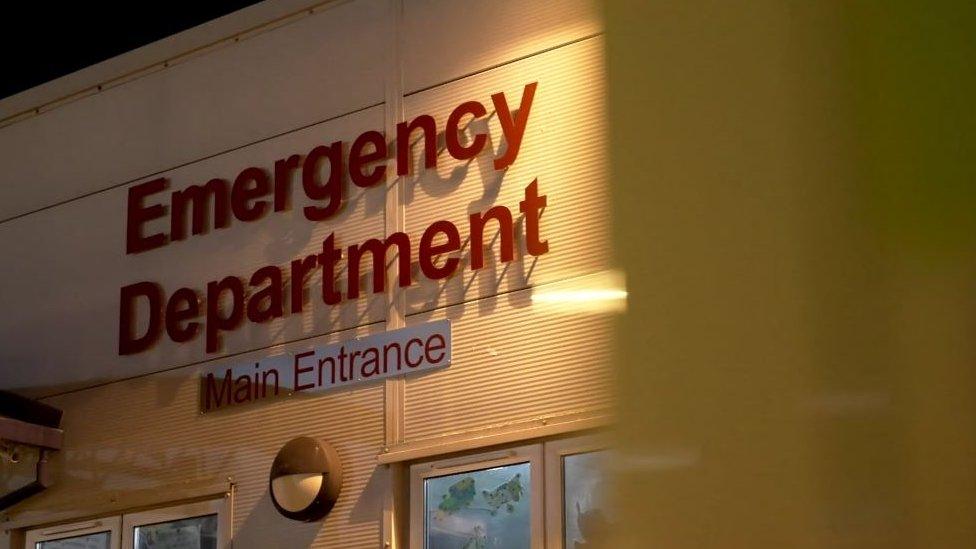
Earlier this week, BBC News NI's health correspondent Marie Louise Connolly spent six hours in the emergency department of the Ulster Hospital in Dundonald.
She describes what she witnessed as staff struggled to cope with surging demand.

The nurses move around, fixing blankets and pulling curtains to protect patient dignity.
At every turn, there is a sick person waiting to be seen or to be admitted onto a ward.
At the peak, 134 people were waiting - in a department that originally housed 65 bedded cubicles.
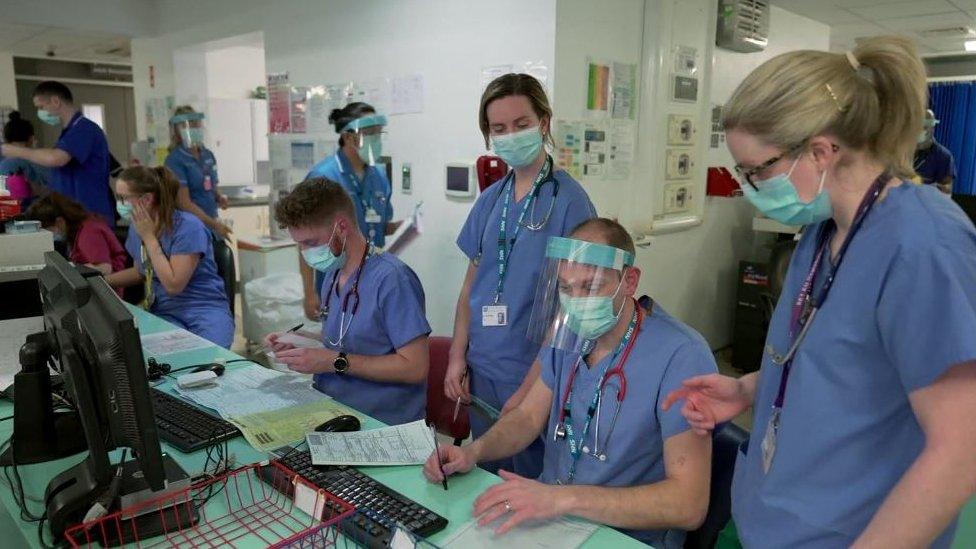
Staff are weary as they struggle to cope with the pressures of a packed A&E
Due to Covid, there are now several separate areas under one roof.
Some patients sit in proper waiting areas - others are in corridors with babies wrapped in blankets on their laps, while others lie on trolley beds.
Older women peer out from under clutched blankets; younger patients scroll their phones.
Patients sit socially distanced alongside each other as staff scurry about, delivering medication, applying IV drips and taking temperatures.
Every available space has been transformed into an additional waiting area - and everyone just seems to be waiting.
It is overwhelming to watch.
Some patients tell me they had been sitting on the same chair since the previous evening - they had eaten their breakfast, lunch and dinner on that spot.
As I write, I learn one patient has spent a second night in the same seat - 29 hours and counting.
An elderly woman screams behind a curtain as a nurse attempts to move her.
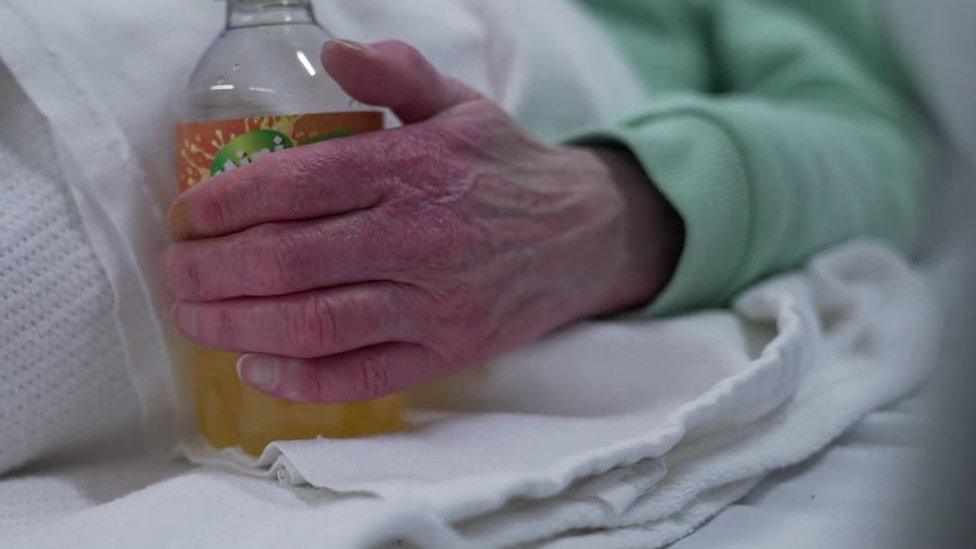
The Medical Assessment Treatment Unit (MATU) has been changed into a temporary ward.
Mostly older people are on trolley beds - some have been there for almost three days.
At 10pm, heads lift with the comforting smell of toast.
I wonder who will feed these patients - staff are few on the ground.
System beyond broken
As well as very sick adults, there are children, just as poorly.
The door to the room where they're cared for is adorned with pictures of unicorns wearing masks.
Inside, it's no fairy tale kingdom as parents cradle coughing toddlers who are struggling with high temperatures.
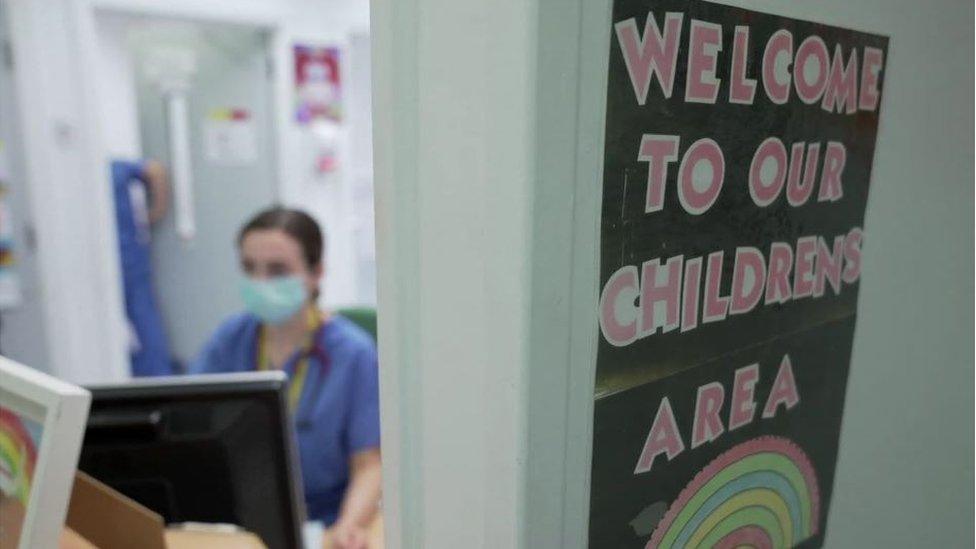
About 65 children are treated in this tiny children's department each day - 22,000 a year.
I witness one child being moved into an area crammed with adults - her mum is with her and a space is found behind a curtain.
Next spring, the plan is to move this unit into a brand new build.
In the here and now, so many things are wrong with this system - it is beyond broken.
But despite everything, staff are delivering safe and dignified care.
They ask me to make sure to advise people to continue to come to the emergency department if they need treatment.
The men and women on the front line look weary.
They wear a quiet acceptance that, sadly, the abnormal has become the norm.
Related topics
- Published25 October 2021
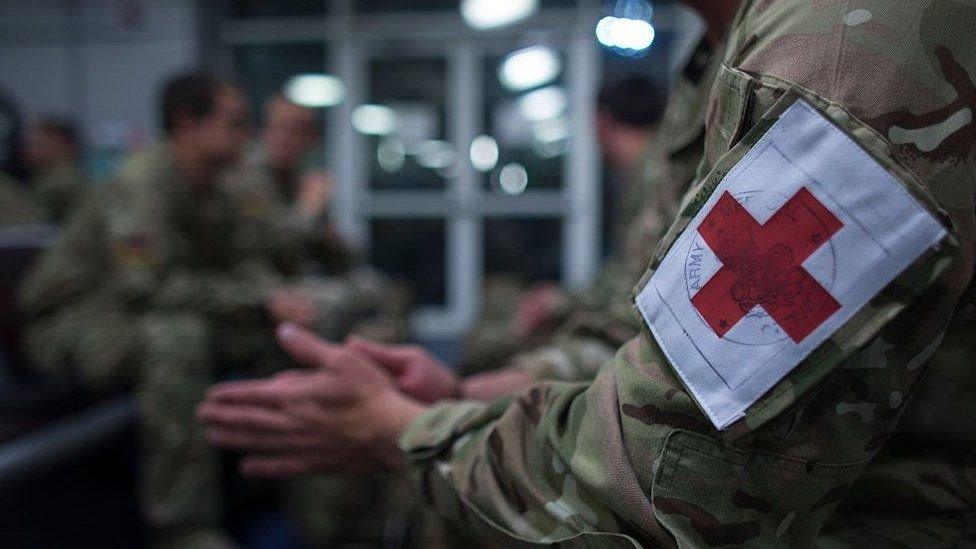
- Published29 October 2021
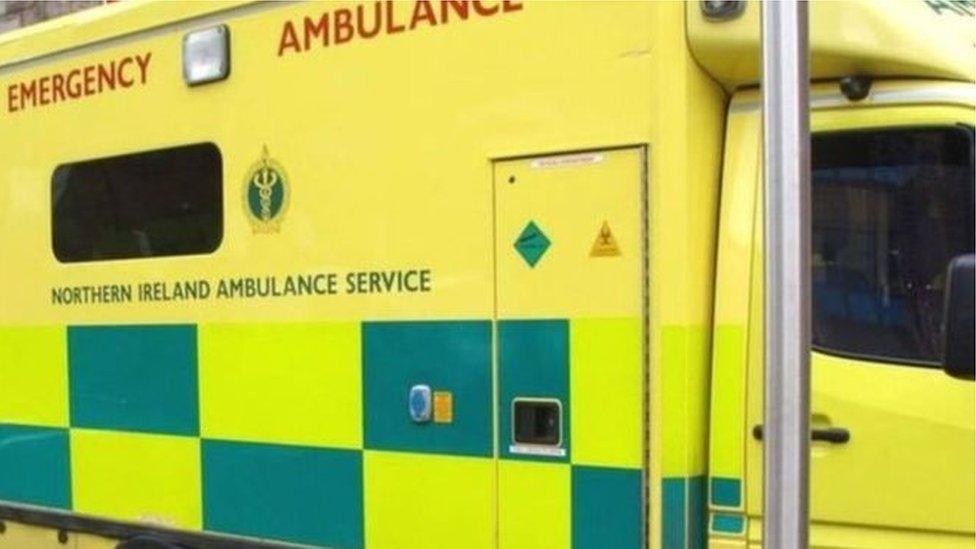
- Published6 July 2021
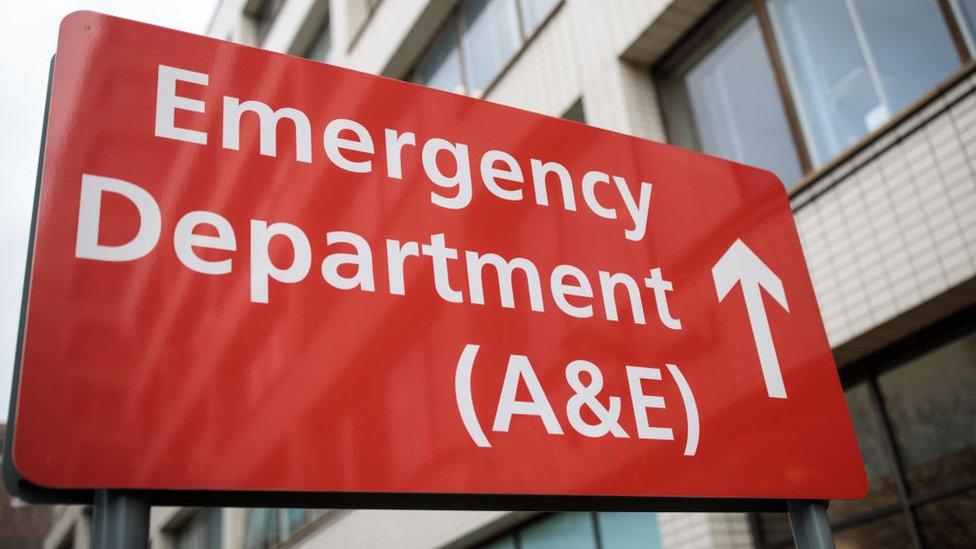
- Published14 October 2021
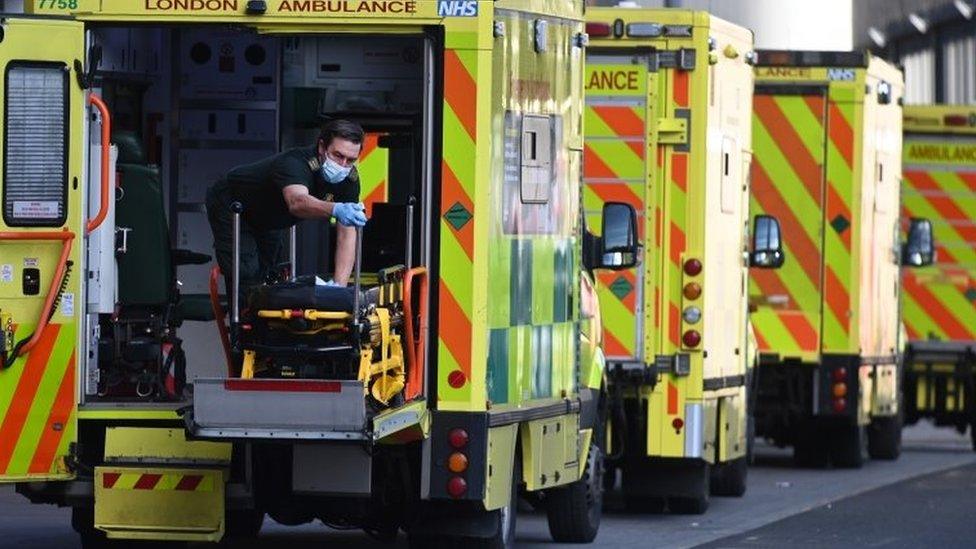
- Published17 December 2020
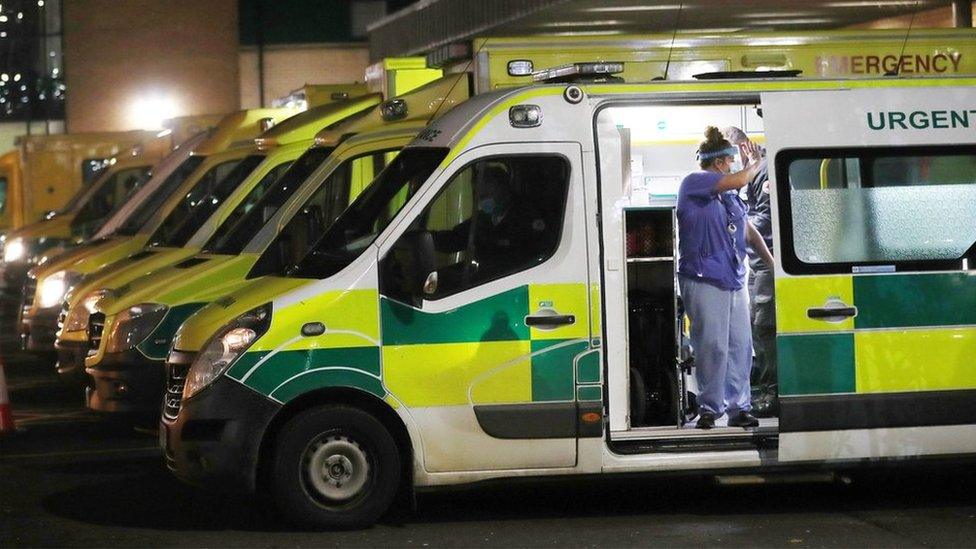
- Published30 August 2021
